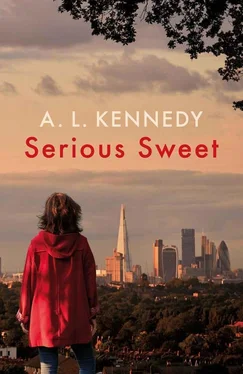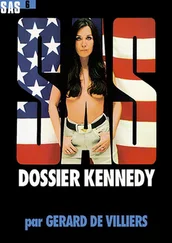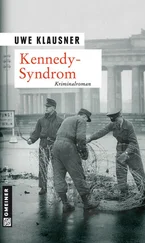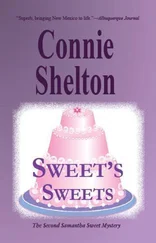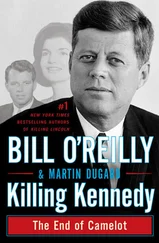Which was the first time I really knew her as a person, an identity, a human being who liked being with me and warm against my chest.
And now he was still again.
The miles-away number kept on ringing.
In a café filled with after-school children, there is snacking and mild rioting after the school day’s restraint. Adults drink coffee and address each other with the practised focus of parents who are used to ignoring the din of their young. Two boys sit on the floor in a far corner, eating toasted cheese. It is clear that being on the floor and together makes everything different and more glorious.
A mother and daughter sit opposite each other, intent. The daughter — about five — is dressed to combat the outside cold: thick tights, bright pullover, little boots. Her coat — red to chime with the pink pullover — is hung on the back of her chair. The girl’s hair is a wild, soft frizz of brown. Her mother’s might be the same were it not bound up in an adult and responsible manner.
The girl leans forward and extends her hand in a fist, then in a blessing, then a blade: ‘Rock, scissors, paper …’ And again, ‘Rock, scissors, paper.’ This repetition seems to press the child full of amusement, which escapes her in smiles, shivers, laughter. Her arm wavers with giggles as she repeats, ‘Rock, scissors, paper.’
Her mother is also leaning forward and also sketching the shapes of a rock and a pair of scissors and a sheet of paper. Neither of them makes any attempt to play the game through and so no one gets to discover what might happen beyond this cycling rehearsal where stone meets stone and metal meets metal and paper meets paper. There’s no competition, the two just dance their hands through the forms and grin at each other, their voices quietly reciting in unison, ‘Rock, scissors, paper.’ And then the child says, ‘Again.’ And they do it again.
Over by the door, a father is addressing his son: ‘That’s funny, isn’t it?’ While the boy picks the sausages out of a sausage sandwich with apparently absolute concentration, the man goes on, ‘Yes, it’s funny because Amanda was here when I had coffee after I took you to school and we’ve known each other for years and we’re friends and now she’s here again. Isn’t that funny?’ The sandwich is more interesting than this strange definition of funny. ‘She’s waving at us — do you see? And I …’ The father stands, ‘I think I’ll go and ask her if she’d like to sit with us, because that would be nice, wouldn’t it.’
The boy’s dad moves across the unpredictably bustling café, carefully patting heads and waving at a woman as if he is in a train, or else a black-and-white movie about leaving. The boy watches him go. The child’s face flickers for a moment through an expression which belongs to adult life — he seems for an instant to have stopped indulging his father by pretending to be young and to be fooled. And then the boy returns to being a boy and making a mess of his sandwich and the sausage and the ketchup, because he is worn out after a day of lessons and is mostly only a primary-school pupil, a son, a child, someone for whom all meetings between grown-ups — married or unmarried — are much the same, someone for whom food is important. He’s growing, he needs to eat.
The daughter and the mother keep on rehearsing the introduction to a game they never play. The daughter is almost savagely focused, this gleam of enjoyable secrecy in her eyes, an inrushing surprise. She says, ‘Again.’ And her mother nods, perhaps slightly bored by this point and sipping from a mug. The daughter recites, louder than usual, ‘Rock, scissors, paper … VOLCANO!’ She makes a little pyramid with her fingers at the last word and then bursts it apart and sways her arms high.
‘Volcano?’
‘That’s when you can do anything.’ The girl explains this as if she is leading her mother gently out from arithmetic to calculus, or else explaining the operation of gravity. She speaks slowly and clearly and with an energetic type of seriousness, because she is passing on important information.
Your name is Jon Corwynn Sigurdsson and you are …
Your name is Jon Corwynn Sigurdsson and you are speaking and …
Your name is Jon Corwynn Sigurdsson and and and you are not you — you are Mr August, you are Dear Mr August, you are Very Dear Mr August and you are …
Your name is Dear Mr August and you have made a phone call and she has answered, actually answered, when you didn’t think she would, because you are no longer deserving and never were and always were caught in two minds, caught between your two minds and …
‘Yes, I know.’
And all you can hear is your darling’s voice — your baby’s, your sweetheart’s, your best girl’s voice. You can hear her voice.
And you can’t hear yourself — only her. Warm at your cheek as kisses would be and you know enough, remember enough, of her to know about her — Dear God, Dear Mr August — to know about her kisses.
‘Yes, I know it’s you.’
And she is very far away.
‘What do you want?’
And this is going badly.
‘What is it that you want, Jon?’
And what you want is horrible, horrible, wonderful, really obvious, dreadful, too much and it’s in you, inside you and working changes, breaking out in ripples, in waves that lash from cell to cell to cell.
‘You should have called me. If you wanted me to stop. If I’m supposed to stop. When you hadn’t said that you wanted to stop. You said you were happy. Why would I want to be something that doesn’t make you happy? Why would I want to bother with …’
And she does not say a waste of time like you, an ugly fuck-up like you, but she is audible all the same.
‘You don’t say goodbye in a text. If you want to go, I can’t stop you — you do what you want. You do what you fucking want, but you tell me, you bloody tell me. You call me and you tell me — at least that. You should tell me to my fucking face. Fuck.’
And you like this about her, love this, anger being a form of passion and therefore she had passion and this passion is still for you, about you — double-minded and pathetic and useless Dear Mr August, she still has this passion of hate that’s for you.
‘I though you were—’ And her voice fraying with this fury you have given her. ‘I thought you were a human being. You’re just a fucking man.’
And you want her to shout more vehemently. You are of the opinion that her doing so would help you both.
And you have this heartfelt … like a cup of hot metal rocking there under the ribs. You really are wishing that you could tell if you’re shouting back — you don’t think so. Not sure. You imagine that you would hear it or have the sensation of it in your chest … with the spill of metal.
You think that you are praying — sort of — and whispering — Sigurdsson, don’t mumble. You are not in bloody Fishertown now — and you are maybe smoothing — I hope — smoothing your voice towards her, smoothing it like sheets, like almonds and milk and the sheets of a fresh-made bed, like altar cloths and the silk skin at her wrists, like the sheets of a fresh-made bed when you have pulled back the coverlet and are getting ready.
All of these things which are so very clean and so very sweet and so …
‘Well, I do! I fucking do! I never said that I didn’t!’
And here it is — she’s shouting. You like the way this hurts you, are contented by it, warmed in your bones.
‘I’m tired!’
And it’s so good, all good.
‘I’m fucking tired!’
And once it is done — please, please — you can start again. You will be able to start again. You will, won’t you?
Читать дальше
